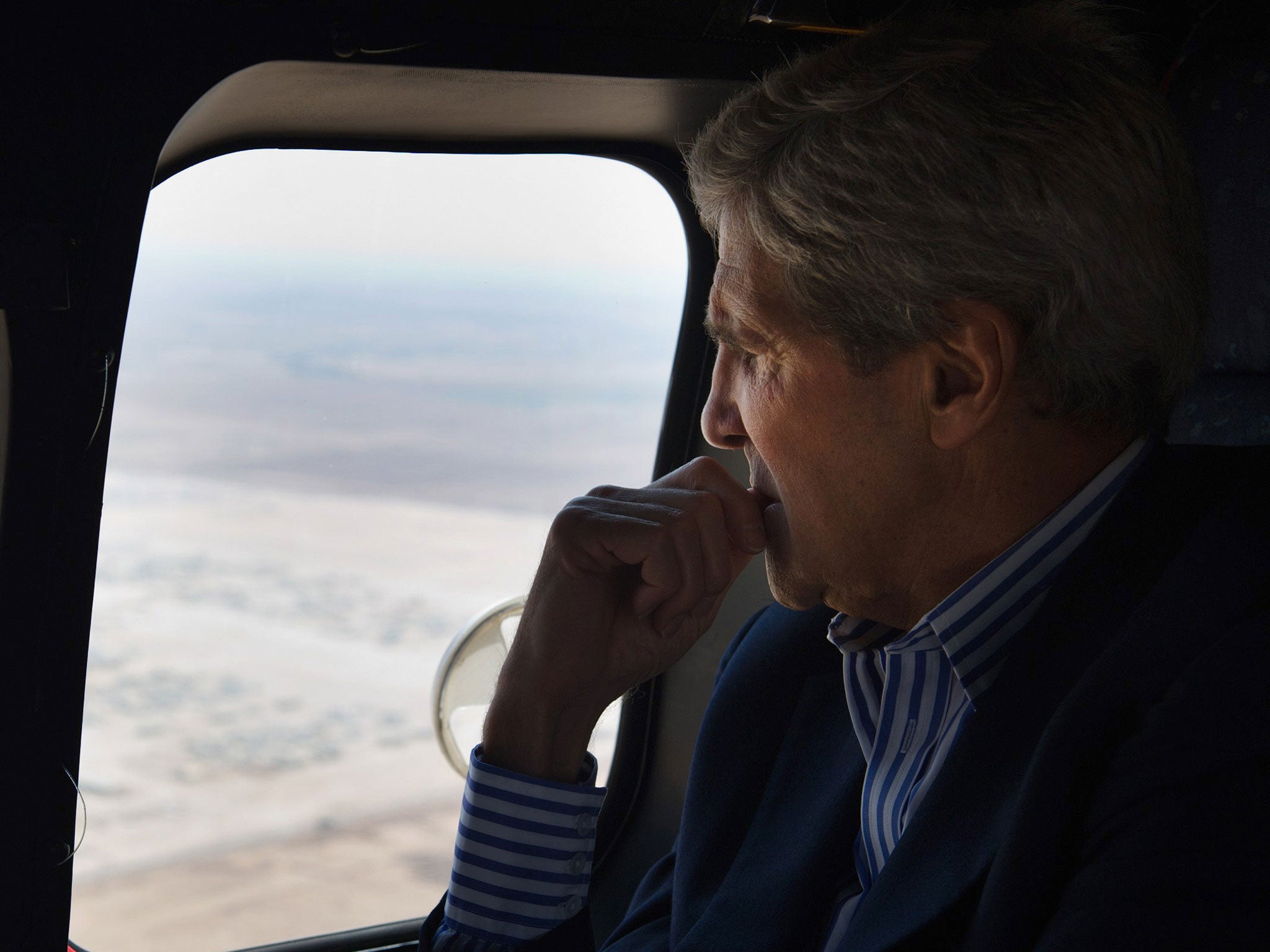Written off – but John Kerry is defying the defeatists
World View: The fledgling US Secretary of State's surprising progress towards Israeli-Palestinian talks has made him a hero... for now at least

There were mea culpas aplenty in this part of the world last weekend. John Kerry – to whom few gave much hope of getting the equally stubborn Israelis and Palestinians to even agree to hold peace talks – appears to have got to first base, and if all goes well the two sides will sit down for preliminary discussions on Tuesday.
The leading liberal newspaper in Israel, Haaretz, has gone from describing America's newish Secretary of State as "like a naive and clumsy diplomat who has been acting like a bull in the china shop of the Israeli-Palestinian conflict", to hailing his achievement as transforming from "Mr Bean's ultimate disaster to Tom Cruise's mission impossible".
And it's not just the otherwise excellent Haaretz. Back in March, following Mr Kerry's first visit, with his boss Barack Obama, I wrote that for all the Obamamania and stardust, the duo achieved virtually nothing on their visit.
So it's hats off to Mr Kerry for his tenacity, hard work and bloody mindedness – the parties in this fragile part of the world are as close to direct negotiations as at any time during the past three years. Dealing with ideological factions on either side of the divide here must drive even seasoned diplomats to despair, and Mr Kerry's achievement – if the Israelis and Palestinians do make it to negotiating table next week – should be acknowledged.
But now what? Having reached this stage in 2010, the talks collapsed within weeks (or hours, if some reports are to be believed). For all the plaudits, and his four-month marathon diplomatic effort, Mr Kerry did not get precisely what he wanted: he wasn't able to announce a resumption – no matter how it was spun – but rather that the two "reached an agreement that establishes a basis for direct final- status negotiations". Speaking to senior Palestinian officials last week, it is clear that they already feel that what they say they were promised is now on shifting sand.
Mr Kerry's approach to this part of the world stands in sharp contrast to that of his predecessor, Hillary Clinton. Mrs Clinton, a presidential hopeful in 2016, largely ignored the Middle East peace process, and favoured lower hanging fruit elsewhere. Having failed to get elected to the White House in 2004, Mr Kerry is unlikely to run again, and thus, politically at least, he is less restricted on what he can do. But for all his welcome ambition, the jury is still out. Indeed, it may well be his ambition that gets the better of him in the Middle East.
The situation in both Israel and the Occupied Territories is delicate. In Israel, a recent general election brought to power a coalition that was more minded on fixing the economy than on sorting out the mess with its neighbourhoods. On the international front, the Prime Minister, Benjamin Netanyahu, is much more concerned with what's happening in Tehran, rather than in Ramallah.
Among the Palestinians too, the timing of the latest push for talks is questionable. President Mahmoud Abbas faces the threat of an increasingly popular Hamas in the West Bank, with the divisions between the two Palestinian factions as wide as ever. Palestinians are rightly concerned about Israeli settlements in the West Bank, but unlike the last time the two sides met, they have been unable to secure a construction freeze.
Elsewhere in the region, Mr Kerry's performance leaves more unanswered questions. The situation in Syria gets worse by the day; America's flip-flopping on whether or not to arm rebel groups, its indecision on making a call on the use of chemical weapons and its inability to organise a peace conference is lamentable. It is not all Mr Kerry's fault. It was Mr Obama who first spoke of chemical weapons and red lines, but it is Mr Kerry's job to resolve the situation (and to sort out his boss's mess). Diplomats say that the horrors in Syria can only be brought to an end by diplomatic means, which is now probably true, but Mr Kerry's much-hyped peace conference in Geneva appears now to be unlikely to take place.
America's biggest Arab ally is Egypt and the ties with the Egyptian military are strong. Because of these ties, the US looked weak when the army overthrew the distasteful, but nonetheless elected, Morsi government. Egypt is the most important of all Middle Eastern countries and, as the reported deaths of more than 70 people on Friday night demonstrate, the situation there is now out of control.
It is early days in Mr Kerry's career as Secretary of State, and he may well achieve great things in the future. So far however, at least as far as the Middle East is concerned, America's leading diplomat has improvements to make.

Join our commenting forum
Join thought-provoking conversations, follow other Independent readers and see their replies